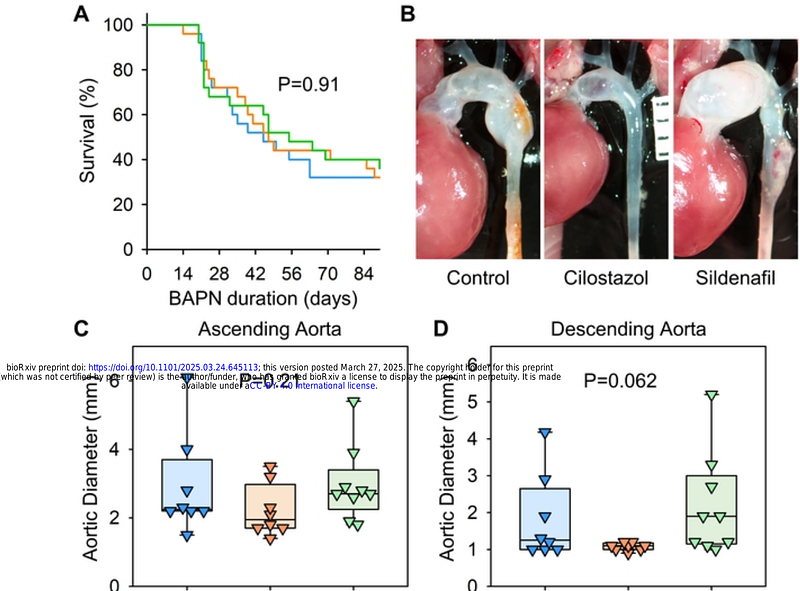β-aminopropionitrile-induced thoracic aortopathy is refractory to cilostazol and sildenafil in mice

β-aminopropionitrile-induced thoracic aortopathy is refractory to cilostazol and sildenafil in mice
Tyagi, S. C.; Ito, S.; Hubbuch, J. C.; Franklin, M. K.; Howatt, D. A.; Lu, H. S.; Daugherty, A.; Sawada, H.
AbstractThoracic aortopathies are life-threatening diseases including aneurysm, dissection, and rupture. Phosphodiesterases (PDEs) regulate intracellular cyclic nucleotide concentrations. Recent studies report the influences of cilostazol, a PDE3 inhibitor, and sildenafil, a PDE5 inhibitor, on abdominal aortic aneurysm formation. However, their impacts on thoracic aortopathy remain unknown. In this study, we investigated whether cilostazol and sildenafil affect thoracic aortopathy induced by {beta}-aminopropionitrile (BAPN) administration in mice. Bulk RNA sequencing analysis revealed that BAPN administration upregulated Pde3a transcription in the ascending aorta and Pde5a in both ascending and descending regions before thoracic aortopathy formation. Next, we tested the effects of cilostazol or sildenafil on BAPN-induced thoracic aortopathy. BAPN-administered mice were fed a diet supplemented with either cilostazol or sildenafil. Mass spectrometry measurements determined the presence of cilostazol or sildenafil in the plasma of mice fed drug-supplemented diets. However, neither drug altered BAPN-induced aortic rupture nor aneurysm formation and progression. These results provide evidence that cilostazol and sildenafil did not influence BAPN-induced thoracic aortopathy in mice.